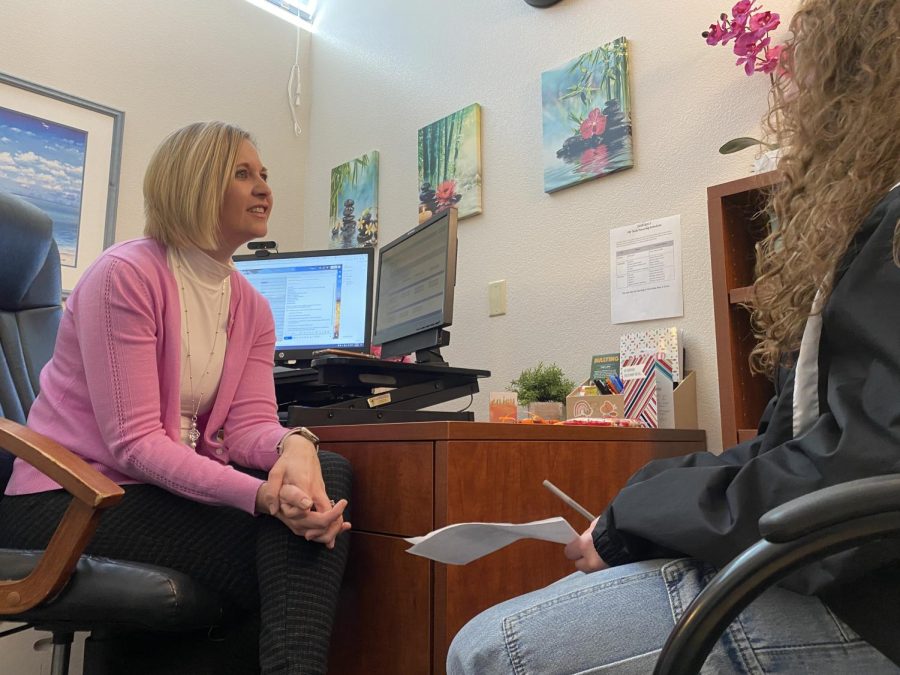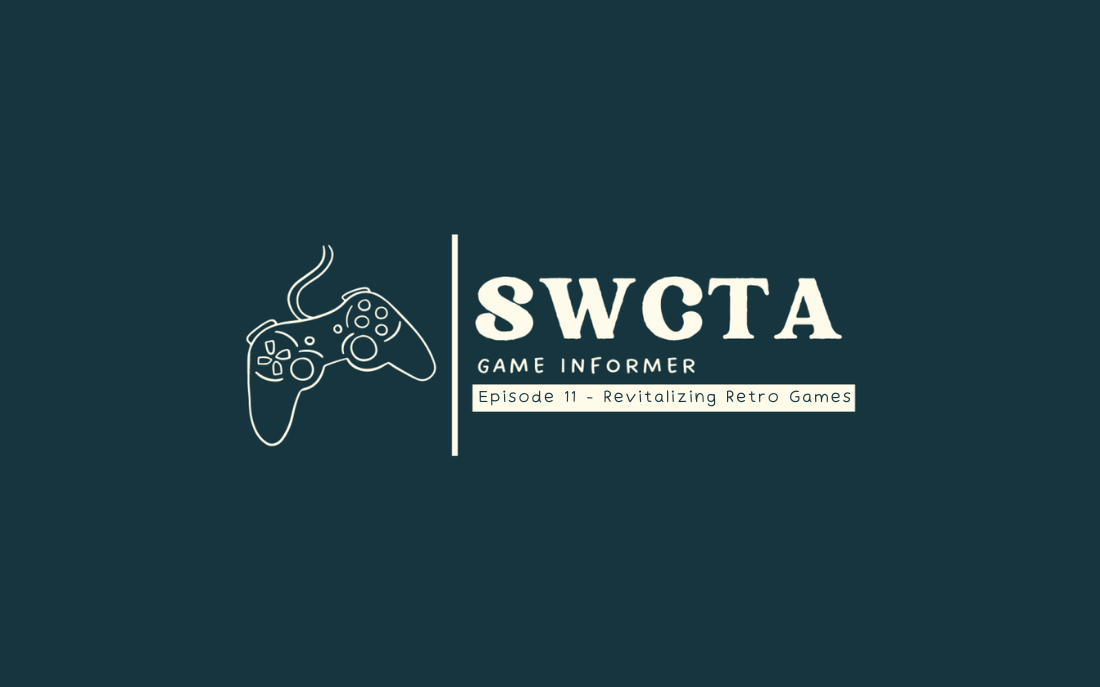New Course Recommendation System in CCSD implemented this month
Using test scores to place students will be part of the selection process
Meeting with students, counselors help them select courses for next year. In CCSD, counselors will now use past test scores to assist with course placement. “I am trying to figure out what classes I will need to take next year, while still having to focus on finishing this year,” junior Dani Hernandez said. “I feel like this whole system will help in some ways but always put more pressure on students.”
February 6, 2023
In order to encourage students to try more advanced classes, CCSD is implementing a new course recommendation system based on students’ test scores.
“There’s a lot of students across the district whose parents don’t know or understand college requirements and they aren’t paying attention, or school has never been something that they’re familiar with,” Assistant Principal Donna Besser said. “So in those cases, a lot of these kids who are smart and prepared can take these tests, and it would show that they clearly could be successful in these higher-level classes. This is basically taking that and making it more equitable for kids that were missing.”
Students will meet with their counselors to determine what classes they will be placed in. If a student does not wish to take a certain course, they are able to dispute the recommendation.
“It’s really not anything that we haven’t already been doing. It’s just more of a formal process that the district is implementing,” Besser said. “We’re not going to force a kid that doesn’t want to be in there to take something they don’t want to take. But if you want to move up, you can move up. We want to make sure that everyone is aware that they’re qualified.”
Some teachers believe relying solely on test scores might not take other important factors into consideration.
“Some students are brilliant readers, but don’t test well,” ELA 9 teacher Corrina Terry said. “Some students didn’t try that day. Some students had a bad day and blew their test. I had a Special Ed student, who cannot write well enough to be in Honors English, test over 231. I had some Honors students score lower than my Special Education students. The better choice would be to take several tests into account throughout the year. Teachers also need to be free to take into account students’ individual abilities and effort.”
However, other courses are not represented on standard tests. Resulting in certain teachers using a different way of recommending students for the upcoming year.
“For science teachers, the teacher recommendation process is a bit different than in other subject areas as there is no straight line progression,” Jumpstart teacher Martha Horner said. “We use current science grade/level, work ethic, math grade or math MAP score if it is available. I like using a combination of factors. Although a test can be helpful, it is only a one day snapshot and may not consider other factors in success.”
Certain students fear that this will put too much pressure on them. This system also does not account for students who happen to be high achieving test-takers, but lack the work ethic needed to excel in the advanced placement classes.
“I am already nervous for the ACT, and now I feel like there is an even higher expectation for me to do well on it,” junior Dani Hernandez said. “I know that students can choose if they want to take the class recommended for them, but now there are more steps to take. They might think that they can do well in a higher math class, for example, and then they won’t be able to leave once the school year starts.”









